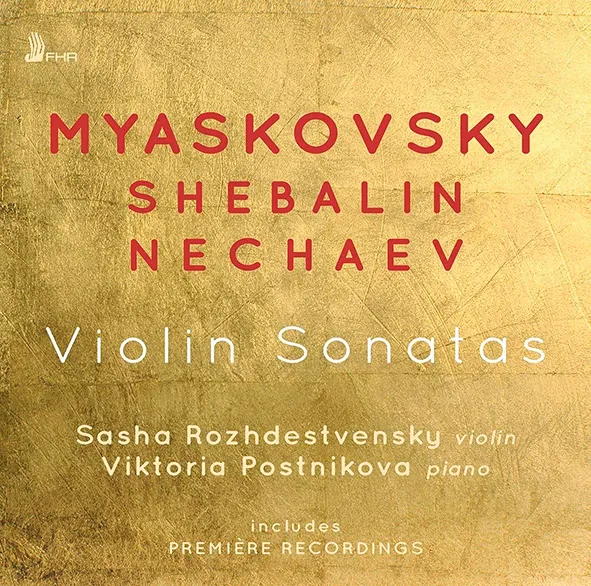
Myaskovsky • Nechaev • Shebalin Violin Sonatas Sasha Rozhdestvensky (violin), Viktoria Postnikova (piano) First Hand Records FHR057 62:27 mins
Myaskovsky is by far the best-known of these three Soviet-era composers, yet this is the first commercial recording of his Violin Sonata. Completed in 1947, its fin de siècle French salon style may have been intended not to offend Stalinist aesthetics; yet the long, rambling phrases – not so much long-limbed as straining effortfully to reach the terra firma of cadences – suggest not all is well beneath the work’s smiling demeanour. Violinist Sasha Rozhdestvensky (son of the late conductor), rather close-miked as if in a 1950s recording, plays fluently though not, perhaps, drawing the music’s last ounce of expressive meaning. His mother Viktoria Postnikova provides idiomatic accompaniment in this and the accompanying two works.
Shebalin’s attractive if not distinctive Violin Sonata, composed in 1958 (five years after Stalin’s death), is initially rather bland – certainly not suggesting a composer posthumously celebrated for introducing his students to the latest avant-garde creations from the West (including music by Boulez); the work becomes more engaging with a Borodin-style 5/4 Scherzo, and a third movement which touches a depth of melancholy Myaskovsky dared not risk under Stalin. It finishes with a crowd-pleasing finale of virtuosic brio. After so much emotional circumspection, it’s almost a relief to hear the forthright histrionics of the 1928 Sonata by Vasily Nachaev. Played here with great relish, one may hear Prokofiev’s influence, particularly in the ‘diabolical’ style of the finale, though that movement’s false endings rather highlight the fact it outstays its welcome.
Daniel Jaffé